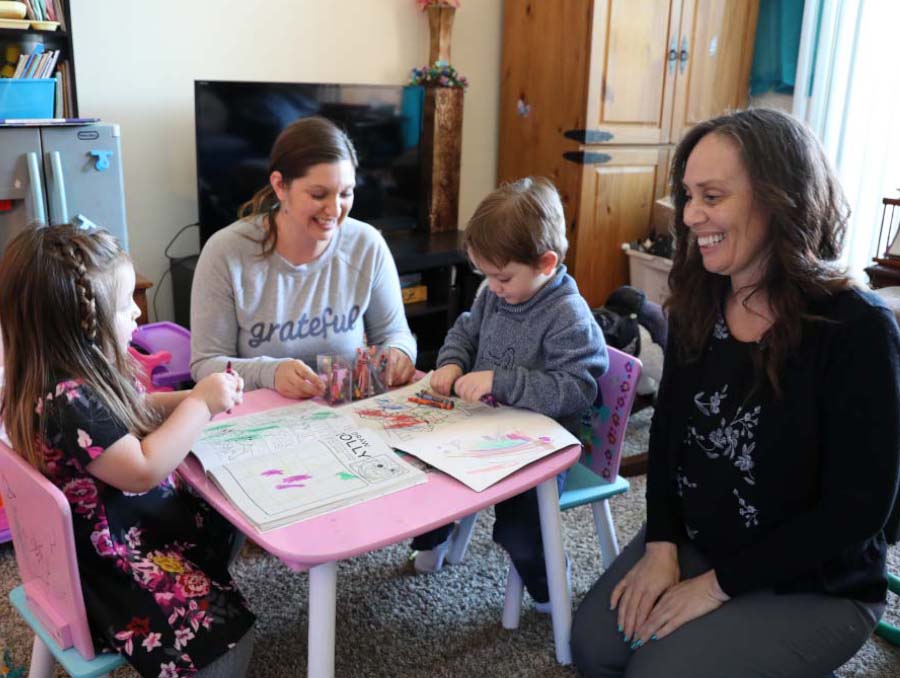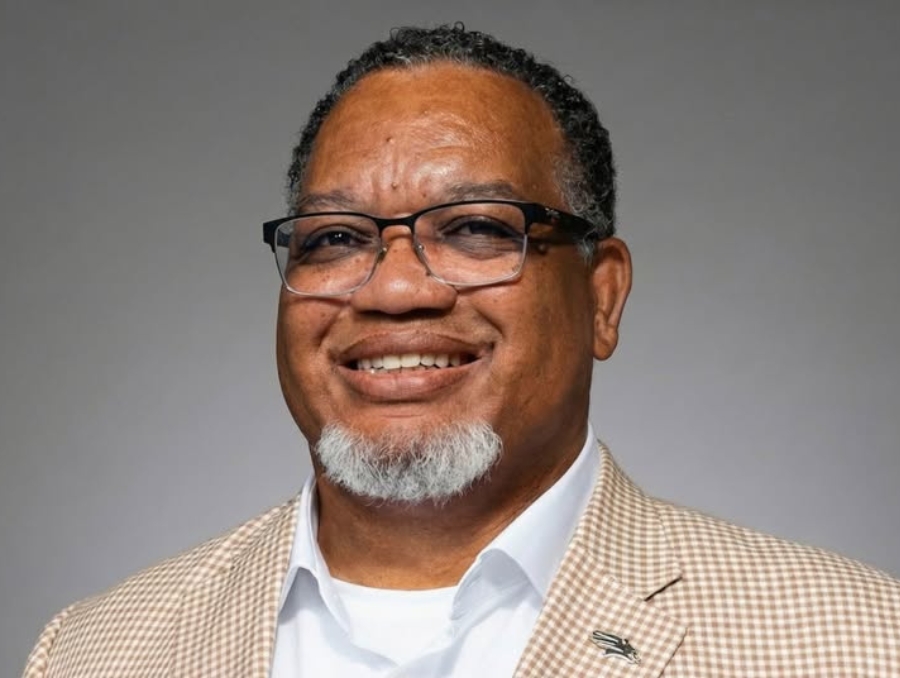The Child and Family Research Center at the College of Education & Human Development received a subaward in the amount of $2.25 million from the Federal Preschool Development grant awarded to the Nevada Department of Education. This three-year grant will expand the College’s Home Visiting program offered for families in the community.
As part of the Home Visiting program, professionals who have been trained in child development and trauma-informed care visit a family’s home once a week to provide parenting support to the caregiver. The primary curriculums are “Parents as Teachers” and “Maternal Mental Health,” which are both evidence-based and are able to be individualized to each visit based on the family’s unique needs, questions and strengths.
Home Visitors also complete developmental screening and assessments such as nutrition assessments, health screenings and parent-child interaction activities. Families are invited to participate in monthly socialization groups and family activities in the community. The child is best set up for success by providing support to not only the caregiver but to the entire family system.
“We strive to provide high quality, comprehensive, early childhood services to children and families in the family’s home or where they feel most comfortable,” Jamie Gehrman-Selby, Early Head Start Home-Based Option supervisor, said. “Each visit focuses on an activity the caregivers can do with their child, information on their child’s development and support around family well-being.”
The Child and Family Research Center receives Home Visiting funds through Early Head Start, Maternal, Infant and Early Childhood Home Visiting and Washoe County Human Services Agency - Family First Prevention Services Act. The University’s Home Visiting program serves 92 children and families who are pregnant or have children up to 5 years old. By the end of 2023, the program is expected to expand to meet the needs of nearly 70 additional children and families through The Preschool Development Grant Birth through Five and the Family First Prevention Services Act.
The funds directly impact the families and coaches providing the services.
Candy Cannon, a home visit coach, stresses the importance of their role in helping create a healthy family “Working with EHS and the families have given me the opportunity to see how much of an impact one person can have on a family, being there and listening to what they need, and helping them out is a life-changing experience,” she said. “Their impact spans well beyond the family and into the community. Home visitors help the community in so many ways. We provide our families with overall support, providing resources for things like housing, food, mental health, physical health, and so much more. I am very proud to be a part of something so important.”
The $2.25 million grant that the Center’s Home Visiting program received from the Preschool Development Grant Birth through Five will expand the program’s existing collaboration with the Washoe County jail system.
“We have been serving pregnant inmates for several years, but this grant will allow us to provide support to parents who are currently incarcerated and to those who are caring for their children,” Gerhman-Selby said. “I am so excited to be able to expand our support to families who are experiencing incarceration and child welfare involvement and to help them build a strong and successful family, both programs are very unique and will continue to serve and support families after they are released from jail.”
Implementing research into practice is essential to provide cutting-edge care to vulnerable populations. Bridget Walsh, professor of Human Development and Family Science, is a leading researcher in the fields of home visiting and family engagement.
“My work is informed by the notion of parallel process or that home visitors should participate and receive support from coaches and in turn provide that support to parents, who in turn provide that support to their children,” she said.
Walsh recently published two articles in the Infant Mental Health Journal and the Journal of Early Childhood Teacher Education. These manuscripts are a continuation of her work on developing and understanding efficacious practices for equipping in-home coaches.
“The relationship-based and individualized nature of coaching can establish a context for home visitors to set goals related to their well-being and practices with families,” Walsh said.
Opportunities are available to students to become involved with the program as volunteers are always needed, and internships are currently available through the Child and Family Research Center’s Early Head Start program.
Melissa Burnham serves as chair of the Department of Human Development, Family Science and Counseling, as well as the Child and Family Research Center.
“I am thrilled at the state’s success in procuring this additional funding to support and expand the CFRC’s home visiting program,” Burnham said. “Jamie has grown this program through successful collaborations and innovative grant writing. Her perseverance and commitment to the families of our community are remarkable.
It is important to our department to foster research that leads to positive impacts on children, youth and families. Dr. Walsh’s original home visiting research has informed the home visiting work of the CFRC. In turn, the CFRC directly impacts children and families in our community. This is such a great example of our collaborative, impactful work.”
















